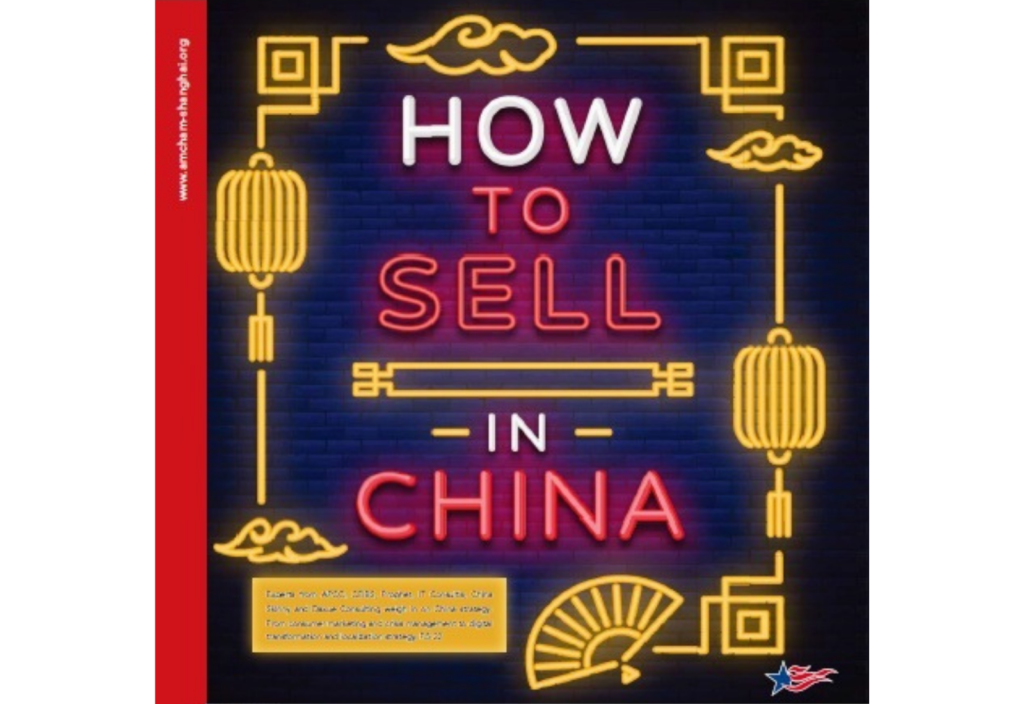Contents of this Article
Implications and Practicalities of China’s E-Commerce Law
1. China E-Commerce Operators
This post will focus mostly on e-commerce operators and the rules regarding e-commerce platform operators most relevant to foreign companies seeking to sell online in China. E-commerce operators are defined to include the entities that sell goods or services through self-established websites or other network services (e.g. social media sites). This definition is broad enough to cover most online sellers and selling activities.
The Law requires nearly all e-commerce operators to register as market entities. The Law further requires all e-commerce operators report and pay taxes according to applicable laws and regulations and do the following:
- Display their business license and any administrative permits, or provide a statement making clear that they are not required to register. If an e-commerce operator voluntarily discontinues its e-commerce business, it must notify the public by continuously displaying at least 30 days in advance of the date on which it will cease conducting its e-commerce business;
- Disclose information regarding its goods or services in a comprehensive, authentic, accurate and timely manner so as to protect the consumer’s right to know and right to choose;
- Provide non-targeted options if it provides targeted search results based on the consumer’s interests, habits or other personal traits;
- Not use any tie-in sale as a default option;
- Clearly set forth its procedure for refunding any deposits collected. This procedure cannot set unreasonable refund requirements.
E-commerce platform operators are essentially the Alibabas, Taobaos, and JD.coms of the world. E-commerce platform operators must build comprehensive systems for product and service evaluation, keep records of goods and services published and transacted on their platform, and establish fair and transparent rules for their platform services and transactions. They also must verify the identity, business registration, tax registration and any other required permit or licenses of any on-platform operator.
E-commerce platform operators can be held liable for goods and services sold on their platforms that do not comply with China’s personal safety or property security requirements if the platform operator knew or should have known about the failure to comply. E-commerce platform operators may also be liable for harm caused by one of its “consumer health” vendors if it failed to verify those vendors’ qualifications.
E-commerce platform operators also must establish and enforce intellectual property rules and delete, block or disconnect links and terminate transactions or services that infringe on an IP holder’s rights. In practice, many of the e-commerce platforms have already established rules for IP protection. For example, if you find a supplier on Alibaba using your trademark or a copyrighted photo without your authorization, you can report the infringement to Alibaba (along with proof of your IP rights) and request Alibaba take down the infringing product page or photo and it usually will. Because China’s e-commerce platforms operate mainly within China, proof of IP rights in Chinese or certificates issued by Chinese authorities will usually lead to faster platform operator action. See Protecting YOUR Intellectual Property From Alibaba and Other Chinese E-Commerce Sites.
Why is any of the above relevant to foreign companies that “merely” sell on a China e-commerce platform? Because if you do not meet the requirements necessary to get on such a platform you almost certainly will not get on. Or if you do get on such platform and then start creating liability risks for your platform operator, you can expect to get booted off relatively quickly. These are serious legal requirements with serious enforcement mechanisms and companies like JD.com and Alibaba take these requirements extremely seriously.
2. Impacts on foreign businesses
Certain other provisions in the E-Commerce Law will directly impact cross-border e-commerce activities. For example, article 26 of the E-Commerce Law requires e-commerce operators that engage in cross-border e-commerce to comply with China’s import and export laws and regulations. Chapter 5 of the E-Commerce Law, Promotion of E-Commerce, provides that China shall promote cross-border e-commerce development, establish and improve the management systems of customs, taxation, entry-exit inspection, payments and other systems relating to cross-border e-commerce, and support cross-border e-commerce platforms in warehousing, logistics, customs declaration and inspection services.
Six China government agencies have issued a notice regulating cross-border e-commerce retail imports. This Notice defines “cross-border e-commerce company” as a company formed outside China that sells to consumers in China from overseas. According to this definition, all foreign businesses that sell goods to Chinese consumers at a retail level can be considered cross-border e-commerce companies. This Notice requires cross-border e-commerce companies register with China customs through a company registered in China and report real-time transaction data of retail imports. Theoretically, all cross-border e-commerce companies must register with Chinese customs and comply with all applicable requirements and China customs will block entry of any goods that violate these requirements. It will though be difficult for foreign companies, especially smaller businesses, to comply with these requirements. China customs will likely enforce these requirements by blocking non-compliant goods from entering the country or by shutting down the websites of foreign sellers that do not comply. Already, some foreign department stores that previously shipped directly to China for their online sales have switched to opening shops on large Chinese e-commerce platforms (such as Tmall) through a Chinese distributor or subsidiary. Others have pulled out of the Chinese market entirely.
We will continue to keep you updated as China’s enforcement policies regarding its new e-commerce law becomes clearer.
Basic Aspects of the E-Commerce Law
1. What constitutes e-commerce activities under Chinese law?
Under the new e-commerce law, e-commerce activities encompasses the selling of goods or services via information networks. Goods sold via information networks can be tangible things, such as apparel, electronics, and cosmetics or intangible things like coupons you can redeem at a restaurant. Services via informational networks includes services performed online, such as telemedicine, and services sold online but performed offline, such as online sales of travel packages, rental car booking services, or tutoring. The law governs transactions completed using information networks, whether the actual service or delivery of goods happens online or offline.
2. Are foreign businesses subject to China’s new e-commerce law?
It depends. The e-commerce law applies only to e-commerce business activities within China. Though “within China” is not clearly defined, a popular (albeit unofficial) view is that if the activity contains any Chinese element, it will be deemed to occur “within China.” Under this view, a China WFOE selling products of its parent company online would be considered a China e-commerce activity, as would the sale of products on a Chinese e-commerce platform by a foreign business without a Chinese entity. Even the sale of products on a foreign website by a foreign entity to a consumer in China will likely also be considered to have occurred within China and therefore subject to the e-commerce law.
Even a foreign business that is not subject to China’s new e-commerce law needs to pay attention to other Chinese laws when selling products to China, such as the laws regarding importing and exporting, customs, publications and cybersecurity.
3. Impact on foreign brands.
Though the new e-commerce law is not aimed just at cracking down on daigou (See China’s Daigou Shopping Model) and though it will obviously not stop Chinese consumers from seeking other channels from which to buy foreign goods, it will serve to reduce daigou/grey market sales and by doing so it necessarily will bolster legal e-commerce sales by foreign companies.
The daigous most likely to be negatively impacted are the “professional” daigous. These are the people who travel abroad regularly to bring back three (or more) suitcases full of products, or who live abroad and go to an outlet mall every weekend to send products back to their buyers/agents/compatriots in China. They usually have shops on e-commerce platforms such as Tmall or they regularly post pictures on their WeChat or other social media accounts to update their customers and then they communicate with those customers on WeChat and close their transactions via WeChat as well.
Because all e-commerce operators must report taxes and because it is clear China intends to enforce this taxation requirement, “professional” daigous will have a harder time operating. Their profit margins will be significantly reduced. As we previously wrote, defrauding Chinese customs is an essential part of many (most?) daigous’ profit margins because China has historically imposed significant duties on a range of luxury imports. Daigous often (usually?) do not report or pay taxes on the income they derive from their sales. If daigous were to pay their taxes and declare the actual value of the goods they are bringing into China and pay the customs duties on those goods, they would lose all or almost all of the cost/pricing advantages they currently enjoy. The online platforms/portals on which daigous traditionally operate will also play a role in the demise of daigous. Because the various online platforms/portals can be held liable for not taking action against those who operate illegally on their sites, they are incentivized to help the Chinese government crack down on illegally operating daigous. For example, if a daigou is selling Balenciaga purses on Tmall and Tmall receives complaints from Balenciaga that the daigou is an unauthorized reseller and is infringing on Balenciaga’s IP rights, Tmall will no doubt take action to stop the daigou from conducting its unauthorized sales.
Thus, the law should greatly benefit foreign brands by bringing China’s online platforms/portals and daigous into compliance.
4. Selling to China’s consumers via cross-border e-commerce
Finally, rules accompanying the new e-commerce law allow foreign brands to legally sell to China at a retail level. According to a December 2018 notice (“Notice”) from six Chinese government agencies regarding cross-border e-commerce retail imports (the Notice about Market Regulation on Improving the Supervision over Cross-border E-commerce Retail Imports, 六部门关于完善跨境电子商务零售进口监管有关工作的通知, Shang Cai Fa [2018] No.486), products imported at a retail level from cross-border e-commerce companies are regulated as products imported for personal use and they are not subject to many approval, registration, filing or labeling requirements that would normally apply to regular imports for trade or resale.
Under this Notice, a viable method for foreign brands to sell to China’s consumers is to work with Chinese e-commerce platforms, which method we will discuss in our next post in this series.

























